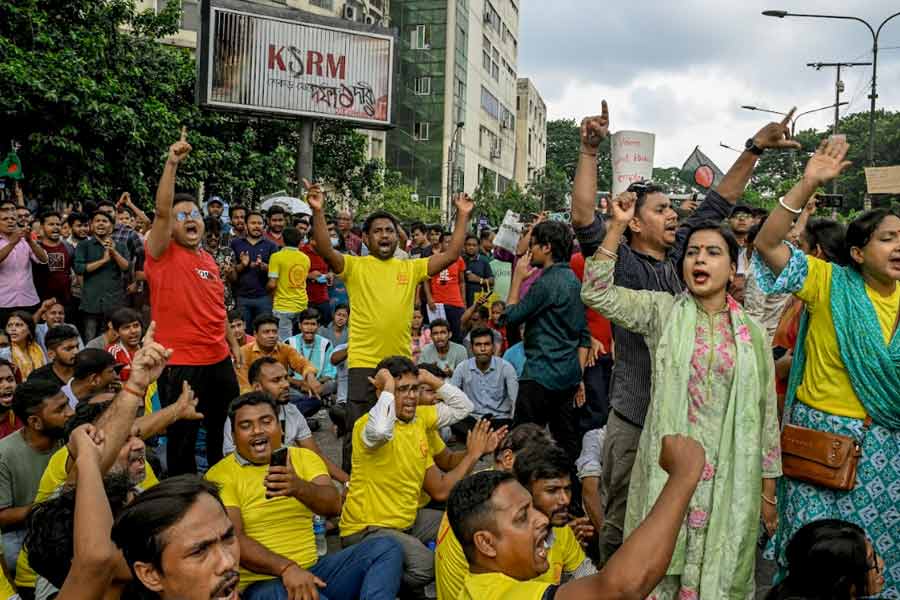The World Health Organization has said the Delta variant of COVID-19 is now present in nearly 100 countries as per conservative estimates, and warned that in the coming months the highly transmissible strain will become the dominant variant of the coronavirus globally.
In its COVID-19 Weekly Epidemiological Update, the WHO said as of June 29, 2021, "96 countries have reported cases of the Delta variant, though this is likely an underestimate as sequencing capacities needed to identify variants are limited. A number of these countries are attributing surges in infections and hospitalisations to this variant."
Given the increase in transmissibility, the WHO warned that the Delta variant is "expected to rapidly outcompete other variants and become the dominant variant over the coming months."
The world body noted that the tools that exist today to combat the coronavirus individual, community level-public health and social measures, infection prevention and control measures that have been used since the beginning of the pandemic remain effective against current variants of concern (VOCs), including the Delta variant.
"Although the increased transmissibility of VOCs (Variants of Concern) means that measures may need to be maintained for longer periods of time, particularly in a context of low vaccination coverage, these measures must be targeted, time-bound, reinforced and supported by member states," it added.
Last week, WHO Director-General Tedros Adhanom Ghebreyesus said the Delta variant is the most transmissible of the variants identified so far and is spreading rapidly among unvaccinated populations.
"I know that globally there is currently a lot of concern about the Delta variant, and WHO is concerned about it too. Delta is the most transmissible of the variants identified so far... spreading rapidly among unvaccinated populations," Ghebreyesus had said.
He had noted that as some countries eased public health and social restrictions, there was a corresponding increase in transmission around the world.
As per latest figures, cases of the Alpha variant have been reported in 172 countries, territories or areas, Beta in 120 countries (one new country), Gamma in 72 countries (one new country) and Delta in 96 countries (11 new countries).
For the first time in several weeks, the highest numbers of new COVID-19 cases were not reported from India.
The update noted that at 521,298, the highest numbers of new cases were reported from Brazil during the June 21-27 week, followed by India (351,218 new cases, a 12 per cent increase over the previous week), Colombia (204,132 new cases, 5 per cent increase), Russia (134,465 new cases, 24 per cent increase) and Argentina (131,824 new cases, 11 per cent decrease).
The South-East Asia Region reported over 573,000 new cases and over 13,000 new deaths, a 5 per cent and a 33 per cent decrease respectively compared to the previous week.
"There is a slight overall decrease in the number of cases reported this week, mostly due to the decrease in the number of cases reported in India," the update said, adding that a number of countries, including Myanmar (112 per cent increase), Indonesia (60 per cent increase) and Bangladesh (48 per cent increase), reported large increases in the number of newly reported cases for this week.
In the region, the highest numbers of new cases were reported from India (351,218 new cases; 25.5 new cases per 100,000; a 21 per cent decrease), Indonesia (125,395 new cases; 45.8 new cases per 100,000; a 60 per cent increase), and Bangladesh (36,738 new cases; 22.3 new cases per 100,000; a 48 per cent increase).
The highest numbers of new deaths were reported from India (9038 new deaths; 0.7 new deaths per 100,000; a 45 per cent decrease over the previous week), Indonesia (2476 new deaths; 0.9 new deaths per 100,000; a 39 per cent increase), and Bangladesh (624 new deaths; 0.4 new deaths per 100,000; a 45 per cent increase).
"Well into the second year of the COVID-19 pandemic, the global situation remains highly fragile. While at the global level, trends in cases and deaths have been declining in recent weeks, there is significant variation by region, by country and within countries, the update said.
It said in all WHO regions, there are countries reporting sharp increases in cases and hospitalisations.
There are a number of factors contributing to this, including the emergence and circulation of more transmissible variants of SARS-CoV-2, increased social mixing and mobility, uneven and inequitable vaccination; and considerable pressure to lift public health and social measures, the WHO said.
WHO chief concerned about jab percentage
Voicing concern over many countries failing to vaccinate their people, WHO chief Dr Tedros Adhanom Ghebreyesus on Thursday called for vaccinating at least 10 per cent of the population of every country by September as he described vaccination as the best way to control the pandemic and reboot the global economy.
"Vast inequities in the access to vaccines are fuelling a two-track pandemic. While some countries have reached a high level of coverage, many others don't have enough to vaccinate health workers, older people & other at-risk groups," the World Health Organisation Director General said in a virtual address to India Global Forum.
Asserting that when some countries cannot vaccinate, it's a threat to all countries, Ghebreyesus called for a global effort to vaccinate at least 10 per cent of the population of every country by September, at least 40 per cent by the end of the year, and at least 70 per cent by the middle of next year.
"Vaccine equity is not just the right thing to do. It's the best way to control the pandemic and reboot the global economy," the WHO chief said as he warned that "until we end the pandemic everywhere, we will not end it anywhere."











